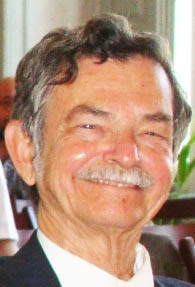 We have great soil, great coast. How to export more?
We have great soil, great coast. How to export more?
Many say that the Spaniards take our fish. This problem with neighbors occurs all over the world. The governments of Denmark and Sweden have been negotiating the long dispute between their fishermen for months.
We should listen to professionals from an early age, not when some nerds from the captaincy bite the door. Sardines, salmon, many fish have omega 3, an important substance for the body, especially for the elderly population, which increases a lot.
Fish is not fattening, does not take vaccines or chemicals to grow, nor does it eat strange feeds. It's a great animal protein; filleted and smoked is worth much more.
Japanese and Chinese are healthy, they live long, by eating fish. The increase in the world's bovine and goat herds does not follow that of the population. The pig must be avoided. Thus, the demand for fish will increase.
Shellfish are also nutritious, natural and taste good. Pollution increases in most seas, eg the Mediterranean. The Atlantic's clean coasts have enviable potential. We have the ideal water and climate to grow a huge variety of algae, edible and industrial production.
Agar-agar algae becomes thickener for the food, pharmaceutical and cosmetic industries. Very expensive substances for pharmaceuticals are extracted from some species. E.g. The porphyra umbilicalis and Veeculous Glariary they serve to thin the blood and lower cholesterol. Chile produces them to feed its people; with good technology exports substances and profits.
Chile, China, Philippines are some of the countries that take advantage of the coast and rivers. Guadiana, for example, has potential for shrimp. The tall Tua and the Tâmega for salmon. The coast and the rias for everything. Even for growing lobster and pearl.
We must organize the production and certify the export. Prof. Emâni Lopes propagated the cluster from the sea. All of this creates jobs, fixes the man in the village, takes advantage of resources and generates exports.
Aquaculture and Fisheries
The objective of aquaculture is to increase production with practices such as artificial feeding, protection against predators, integration with other species. It includes the production of tropical fish and corals for decoration or the production of oysters. The increase in population required new ways to produce animal protein and fishing alone is no longer enough.
Portugal is one of the countries that consume the most non-sustainable fish; aquaculture is said to have antibiotics/hormone.
The consumption of seafood products is around 60kg/inhabitant/year, ie, one of the highest in Europe. The exploitation of fisheries and the lack of good management forces the preservation of resources, which brings the catch close to zero.
Aquaculture does not replace the capture of wild fish, but complements it and relieves the pressure on the natural resources of the sea.
Until 1998 the largest proportion was based on bivalve culture, eg the amei-joa. Since 1995 the production of fish, eg sea bream and sea bass, has grown.
Portugal has good potential for aquaculture; in Vila do Conde we have mussels in 9 months. In the Rias Bajas, Spain, it reaches commercial size in 18 months (twice as long as here). The oyster grows well in the Sado estuary (8 months). In Northern France, Arcachon, takes 24 to 33 months.
Author Jack Soifer is the author of the books "Empreender Turismo de Natureza", "Portugal Rural" and "Como Sair da Crise"


















Comments